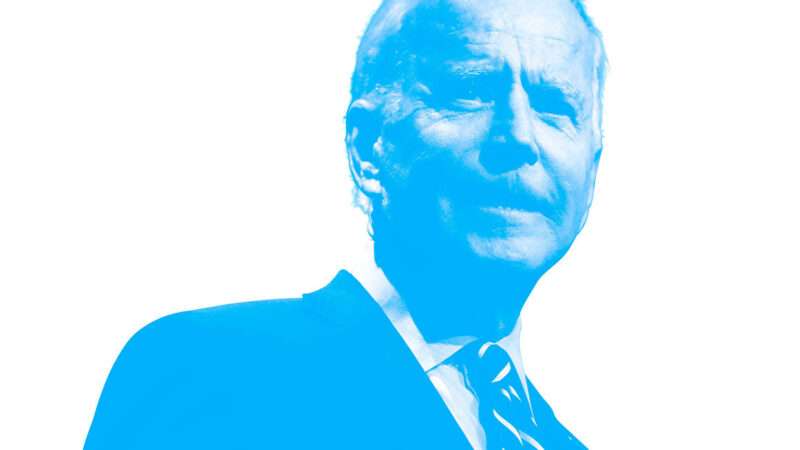
In the January 2025 issue of Reason, we're giving performance reviews of Joe Biden's presidency. Click here to read the other entries.
President Joe Biden spent summer 2023 pitching voters on Bidenomics—how his policy agenda contributed to the American economy.
Voter perceptions were gloomy: A majority rated Biden's handling of the economy as unsatisfactory. In summer 2022, inflation had hit a 40-year high, and prices remained elevated even after the rate of inflationary increase came down. Meanwhile, the Federal Reserve had begun to raise rates, making it much more expensive to finance homes, cars, and new construction.
But Biden had a different story to tell. Three big pieces of legislation, he argued, had made the U.S. a roaring success and the envy of the postpandemic world. Biden wasn't just arguing that the economy was strong; he was arguing that it was strong because of his performance as president. Putting your name on something is a time-honored tactic for executives trying to make the case for themselves. But Biden's argument wasn't very convincing.
First, there was the American Rescue Plan, a $1.9 trillion, deficit-financed, partisan grab bag of Democratic policy priorities and social supports, including checks for households making up to $150,000 a year, even as pandemic restrictions were receding.
Second, there was the Build Back Better bill, which, after a long and drawn-out process, was eventually—and tellingly—renamed the Inflation Reduction Act. The name change amounted to little more than a politically motivated messaging gimmick. When the $900 billion bill passed in 2022, the public's chief economic worry was rising inflation. Yet few if any independent analysts believed the bill would do much to reduce rising costs.
A year after the law passed, Biden even admitted that much of the bill's spending had nothing to do with inflation. Rather, it was a climate change bill, intended to spur green energy infrastructure with vast new spending. But that process would be slow at best. Among the law's provisions was a $7 billion fund for electric vehicle charging stations; by summer 2024, fewer than 10 stations had been constructed, and most states hadn't even filed plans for a build-out.
Finally, there was the $280 billion CHIPS and Science Act, which provided subsidies to factories in hopes of spurring manufacturing employment. Among the most prominent beneficiaries of the subsidies was Taiwan Semiconductor Manufacturing Company Ltd., which got money to build a semiconductor fabrication facility in Arizona. But the company's retired founder threw cold water on the project, warning that American labor costs would render it inefficient. By 2024, the project had hit multiple delays, many due to labor shortages. Regulatory requirements such as on-site child care for workers contributed to the slowdown.
For months Biden touted these bills in speeches across the country, with a focus on Rust Belt and Sun Belt manufacturing towns. But voter assessments of his economic performance kept declining. Eventually, Biden dropped the word Bidenomics from his repertoire. Bidenomics was a bust.
The best one can say for Biden's handling of the economy is that he dutifully showed up to work. But the presidency isn't a punctuality test, and most voters weren't happy with the results.
Economic policy performance review: needs improvement
The post Bidenomics Goes Out With a Whimper appeared first on Reason.com.







